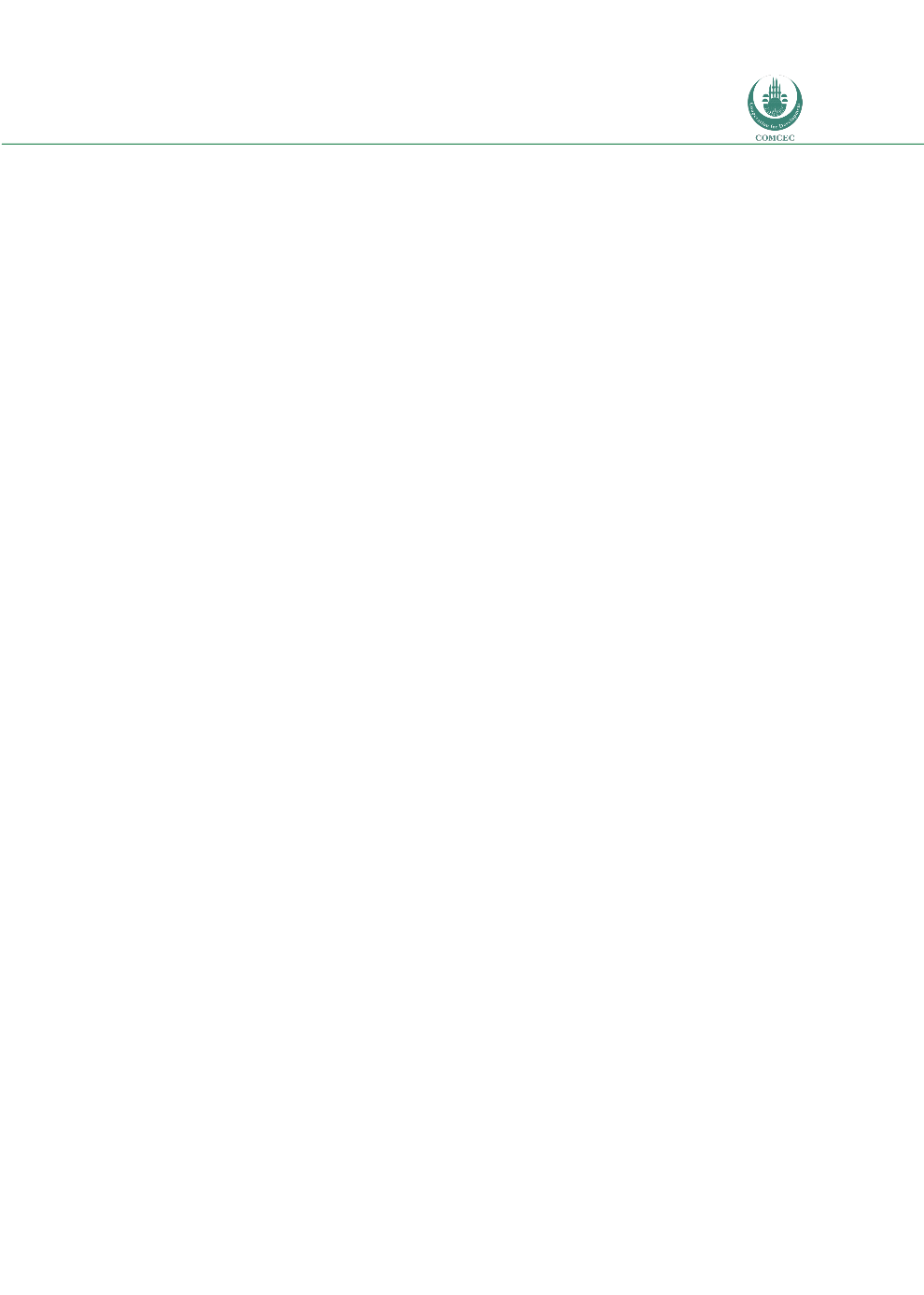

Risk Management in
Islamic Financial Instruments
163
sensitive to market volatility, compared to their conventional counterpart funds and their
market benchmarks, indicating less exposure to the systematic risk.
Merdad et al. (2010) find that, regardless of the benchmark used, systematic risk for Islamic
funds is always lower than their conventional counterparts during the financial crisis period.
Likewise, Hakim and Rashidian (2002), Hakim and Rashidian (2004) and Girard and Hassan
(2005) show that the US Dow Jones Islamic index seems to be less sensitive to the volatility in
systematic risk, compared to their conventional counterpart indices. Al-Zoubi and Maghyereh
(2007) find less risk associated with the Dow Jones Islamic Market Index (DJIM), compared to
the Dow Jones World (DJW) broad market basket of stocks.
Merdad et al. (2010) also suggest that Islamic mutual funds managed by HSBC in Saudi Arabia
tend to underperform their conventional counterparts during the full period and the bullish
period, but they outperform conventional funds during bearish periods and financial crises.
A.1.3.3 Comparison of Performances Between Islamic Indexes and
Conventional Indexes
Similarly, Hussein (2004), Hakim and Rashidian (2004), Girard and Hassan (2005 and 2008)
and Hashim (2008) show that the performance of Islamic market indices, such as FTSE and the
Dow Jones Islamic Indices family, does not differ significantly from their conventional
counterpart indices. This is consistent with Ahmad and Ibrahim (2002) and Albaity and Ahmad
(2008), who find that the performance difference between the Kuala Lumpur
Syariah
Index
(KLSI) and the Kuala Lumpur Composite Index (KLCI) is not statistically significant; however,
the Kuala Lumpur
Syariah
Index (KLSI) is less risky than the Kuala Lumpur Composite Index
(KLCI).
A.1.3.4 Investment Styles and Fund Performance
With regards to the investment style associated with Islamic investment portfolios, the
majority of previous studies find that the
Sharia
screening process tends to influence the
investment style, compared to unrestricted conventional counterparts. Girard and Hassan
(2005 and 2008) and Abderrezak (2008) indicate that Islamic investment portfolios seem to
be more exposed to small and growth companies. Forte and Miglietta (2007) and Kraeussl and
Hayat (2008) indicate a growth cap bias associated with Islamic indices. Hoepner et al. (2009)
find small cap bias associated with Islamic mutual funds, but not growth. However, they did
not document a small cap tilt with Islamic mutual funds in GCC and Malaysian markets.
More recently, Hassan et al. (2010) show that Malaysian Islamic mutual funds tend to be small
cap oriented, compared to their conventional counterparts. Merdad and Hassan (2011),
however, improve on this methodological shortcoming by expanding the dataset to 143 mutual
funds in Saudi Arabia and employing multi-index CAPM measures. The results show that, over
the entire sample period, there was no statistical difference in performance between Islamic
and conventional fund portfolios.

















